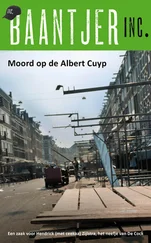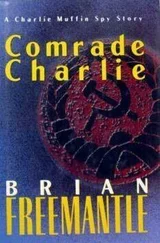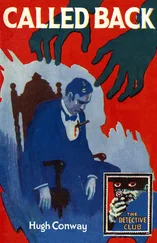Albert Edwards - Comrade Yetta
Здесь есть возможность читать онлайн «Albert Edwards - Comrade Yetta» — ознакомительный отрывок электронной книги совершенно бесплатно, а после прочтения отрывка купить полную версию. В некоторых случаях можно слушать аудио, скачать через торрент в формате fb2 и присутствует краткое содержание. Жанр: foreign_antique, foreign_prose, foreign_sf, на английском языке. Описание произведения, (предисловие) а так же отзывы посетителей доступны на портале библиотеки ЛибКат.
- Название:Comrade Yetta
- Автор:
- Жанр:
- Год:неизвестен
- ISBN:нет данных
- Рейтинг книги:4 / 5. Голосов: 1
-
Избранное:Добавить в избранное
- Отзывы:
-
Ваша оценка:
- 80
- 1
- 2
- 3
- 4
- 5
Comrade Yetta: краткое содержание, описание и аннотация
Предлагаем к чтению аннотацию, описание, краткое содержание или предисловие (зависит от того, что написал сам автор книги «Comrade Yetta»). Если вы не нашли необходимую информацию о книге — напишите в комментариях, мы постараемся отыскать её.
Comrade Yetta — читать онлайн ознакомительный отрывок
Ниже представлен текст книги, разбитый по страницам. Система сохранения места последней прочитанной страницы, позволяет с удобством читать онлайн бесплатно книгу «Comrade Yetta», без необходимости каждый раз заново искать на чём Вы остановились. Поставьте закладку, и сможете в любой момент перейти на страницу, на которой закончили чтение.
Интервал:
Закладка:
"Hello, Blow Away," Jake said. "I've got something to say to you. Your bundle" – he indicated Rachel – "steered me up to a honey bunch this afternoon, named Yetta Rayefsky. The little doll took my eye. See? She's Ray's cousin. I just want you to explain to her – as a favor to me – that she mustn't butt in. The less talking she does with her mouth the better it'll be. You'd better impress it on her, so she won't forget? See?"
Charlie – alias Blow Away – saw. And Rachel saw. She cowered down in a corner and promised not to warn Yetta – if only they would not beat her. But it was a basic belief of these two gentlemen that "a beating is never wasted on a woman."… It was from this time that Rachel began to kill herself with "booze." She did not like to remember how she had betrayed Yetta. And drink helped her to forget.
There were few things which Jake, or Harry Klein – it does not matter what name we use for him, for a hundred aliases were on the back of his portrait in the Rogues' Gallery – there were not many things which he enjoyed more than seeing some one cower before him. The servility with which "Blow Away" had obeyed his orders, the wild terror and passionate pleadings of Rachel, had tickled the nerves of his perverted being, and he smacked his lips as he went downstairs and out into the twilight of the open streets.
He was the recognized leader of the principal East Side "gang" – a varied assortment of toughs, "strong-arm men," pickpockets, "panhandlers," and pimps. It must not be supposed, however, that these various professions were sharply differentiated. There is a hoary tradition which says that once upon a time the under world of New York City was divided into rigid classes and cliques, when a "dip" looked down on a beggar, and highway robbers had a professional pride which kept them from associating with panders. But in the year of grace 1903 – when Jake's crooked trail ran across Yetta's path – such delicate distinctions, if they ever had existed, were entirely lost. Many a man who claimed to be a prize-fighter sometimes "stuck up a drunk." The "flyest" pickpocket did not disdain the income to be derived from the sale of "phony" jewellery. It was no longer possible to distinguish a "yeggman" from a "flopper," and even bank robbers wrote "begging letters." And of all "easy money," the easiest is from prostitution. There were very few denizens of the under world who did not have one or two women "on the string." Even the legendary aristocracy of forgers had sunk thus low.
The political manifestation of the gang over which Jake ruled was the James B. O'Rourke Democratic Club, of which he was president. This organization maintained, with the help of a subsidy from Fourteenth Street, a shabby parlor floor club-room on Broome Street. They gave one ball and one picnic a year. A central office detective, if he had attended a meeting, could have given a "pedigree" for almost all the members. But the political bigbugs, the members of the city administration, who sometimes came to visit the club, did not bring a detective with them. They saw only a roomful of ardent young Democrats. The good-will of the club was an important asset to aspiring politicians; the members would willingly vote half a dozen times for a candidate they liked.
The social centre of the gang was a "Raines Law" hotel on lower Second Avenue. It had a very glittering back parlor for "ladies." There, and in the Hungarian Restaurant next door, Jake's followers spent their moments of relaxation. The frontier between their territory and that of hostile gangs was several blocks away. The "hang out" was just inside the borders of a police precinct, with whose captain they had a treaty of peace.
The more professional headquarters were in an innocent-looking barber shop on Chrystie Street. In the back there was a pool parlor. The lamps were so shaded that the table was brilliantly illumined and the rest of the room was black. If you walked in from the brightly lighted shop in front, you could not tell how many people were there, nor how many pistols were pointed at you. From the toilet-room in the back there was an inconspicuous door into the alley, which, besides its strategic advantages, led to the back door of Pincus Kahan's pawnshop. Much stolen goods followed this route.
A sort of Robin Hood romance has been thrown around the notorious gang leaders of Lower New York. As usual, the reality back of the romance is a very sorry thing. Jake, for instance, was not an admirably clever, nor strong-willed, nor fearless specimen of the genus homo. To be sure he excelled many of his stunted, defective, and "cocaine-doped" retainers in these qualities, but above all he owed his position to a calculating, patient prudence. Discretion is certainly the better part of valor in knavery, and while most crooks are daredevils, Jake was discreet.
Since his first detention in the House of Refuge, Jake had managed to keep out of jail. On his release he had organized a "mob" of pickpockets. Most of its members were boys he had met in that worthy institution. Neither the House of Refuge nor any of the other "reformatories" are to be blamed for the crimes of those who have passed through them. Many of their inmates are taught honorable trades, and some follow them after release. Nearly half of the juvenile pickpockets who gathered about Jake had never been arrested – and they were every bit as bad as those who had been in the House of Refuge.
Owing to their leader's discretion, this little "mob," which had affiliated with the dominant East Side Gang, enjoyed an almost unbroken run of prosperity. But when he had turned eighteen, Jake retired from the active practice of his profession. There was as much money and more security in women. Nature had endowed him with the necessary external charms. He enjoyed cleanliness, he was good looking, and above all he had a soft, persuasive voice.
His covetousness, joined with a natural ability at organization, was always pushing him into new enterprises. He gathered together the wreck of the notorious Beggars' Trust. He joined "The Independent Benevolent Society," and cornered the business of supplying girls to their "brass check" houses. One after another, he gained control of the gang's most lucrative ventures. Almost any other man of the under world would have made a play for acknowledged leadership long before Jake did. He was modest, or, as his enemies said, a coward. He waited until sudden death or imprisonment had removed his principal rivals – until the leadership was practically forced upon him.
There were cleverer, more strong-willed, braver men in the gang than he. But he was never careless. A civil war within the political machine had given him an opportunity to make explicit and profitable treaties with those "higher up." He had sense enough to leave "dope" alone. He lacked the imagination to have any sentiment of loyalty or any sympathy, and this made him what is called unscrupulous. Like most cowards he was bitter and cruel in revenge. He had never killed a man with his own hands, but he ruled his organization of "thugs" through fear.
It was two days after her encounter with him in the Park before Yetta saw him again. As she came out of the factory, after the day's work, she almost ran into him.
"Why, hello, Miss Rayefsky," he greeted her. "Your cousin Ray told me where you worked. May I walk along with you?"
He walked beside her to the corner of the street where she lived. Glowing stories he told her of the Ball, how much fun he and Rachel had had, and how sorry he was that she had missed it. Really, she ought to have come. What fun was there for working girls if they did not go to dances? To be sure some girls were too crazy about it, went to balls every night and stayed up too late. He disapproved of such doings. He had to work. And he did not want to be sleepy in the office. No, indeed! A serious young man with ambitions could not afford to try the all-night game. He very seldom went to balls except on Saturday night.
Читать дальшеИнтервал:
Закладка:
Похожие книги на «Comrade Yetta»
Представляем Вашему вниманию похожие книги на «Comrade Yetta» списком для выбора. Мы отобрали схожую по названию и смыслу литературу в надежде предоставить читателям больше вариантов отыскать новые, интересные, ещё непрочитанные произведения.
Обсуждение, отзывы о книге «Comrade Yetta» и просто собственные мнения читателей. Оставьте ваши комментарии, напишите, что Вы думаете о произведении, его смысле или главных героях. Укажите что конкретно понравилось, а что нет, и почему Вы так считаете.












